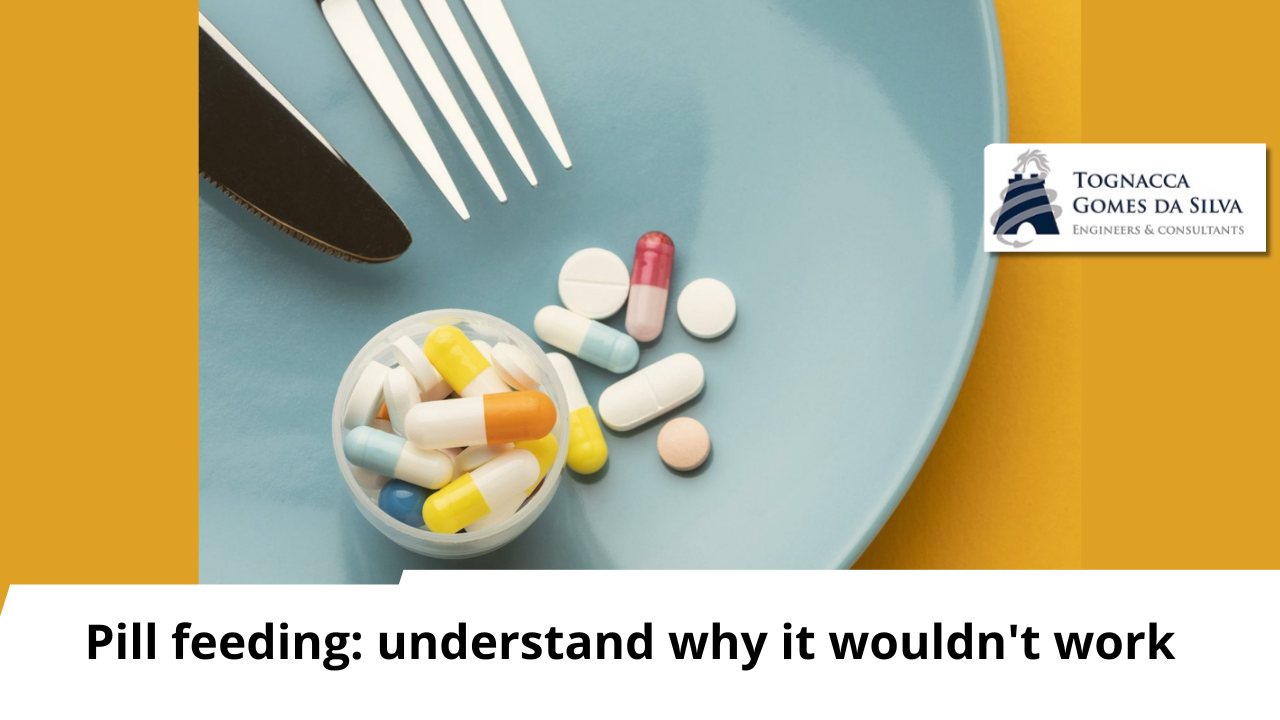Food as medicine: eating pills is unfeasible for a simple reason
A little history behind pill feeding
You’ve probably already witnessed this scene: an individual from the future puts a capsule in his mouth, ingests it, and feels fed almost instantly.
Activist Mary Elizabeth Lease (1850-1933) anticipated that by 1993, people would be consuming exclusively synthetic foods, which would free women from cooking.
She imagined that individuals would be absorbing it in a concentrated form from the fertile land. A small vial of this vitality, drawn from the generous womb of Mother Earth, would provide nutrition for several days. And thus, issues related to cooks and the kitchen would be resolved.
In response, some comic books of the time satirized the idea of women not wanting to spend most of their time in the kitchen.
Despite the narratives of political speeches and literary novels, at the beginning of the 20th century, serious concerns began to emerge around food production.
One of them was that the planet would not be able to produce enough food for the entire population, due to rapid demographic expansion. Therefore, in the 20s and 30s, the idea of eating pills spread in the press as something inevitable, although scary. And humor was used as a way to ease panic.
The space race and pill feeding
These were plausible conceptions for many people in the postwar period, who witnessed science and technology develop tools that both destroyed and offered hope for rebuilding the world.
And in this reality, men were just a smaller cog in a vast industrial machine. This perspective was summed up by the slogan of the Chicago World’s Fair in 1933: “Science discovers, industry applies, man adapts.” This motto implies that man must submit to the great advances of the time, including the adoption of meals in the form of pills.
Instead of enjoying food, people would start to deal with controlled foods, reduced to their essential components. The pleasure of eating would be replaced by the practical usefulness of eating: staying alive.
Science fiction at that time, the “future of the past”, was fascinated by this technocratic and dysfunctional vision, which always came up when discussing food pills.
However, this posture of submission disappeared during the 1960s, being replaced by the vision of a technological utopia, driven by the charm and enthusiasm of the space race.
In the age of space exploration, food capsules would be the next logical step in the evolution of food – representing the pinnacle of efficiency and a victory for humanity over natural forces.
Meanwhile, in space, astronauts in experimental capsules ate silver bags and food paste far from the Earth’s surface.
The emergence of condensed and dehydrated foods reintroduced food capsules to the menu of futurists. All of this, combined with the rise of television dinners and concerns about food safety during the Cold War, has spurred a resurgence in depictions of futuristic food. There was still the idea of a future diet using pills.
“It’s just not viable”
Like many other visions of the “future of the past,” pill eating has gone from an object of fascination to a target of ridicule.
In the 1960s and 1970s, cartoons like The Jetsons took a dismissive look at the idea, mocking the idealists of the past.
The point, of course, is that manufacturing a food pill is simply not viable. Military programs developed increasingly compact rations and pills that could mitigate hunger, but the conception of a pill containing a complete meal remained distant.
“We don’t just want food, we want food, fun and art.”
Long before the Titans released “Food” (1987), already in 1936, Dr. Milton A. Bridges, from Columbia University, in the United States, stated that “human beings will never consume pills as meal replacements, pills will never will be able to provide enough calories.”
For him, it was “plausible to provide all the vitamins and minerals necessary for a diet in the form of tablets, but you cannot obtain calories without eating food”.
Furthermore, there is a very simple reason: food is not just food, it is fun and it is art. In this sense, the act of eating is not just about eating, it is a moment of pleasure that, apparently, we are not ready to give up.
( source: bruna oliveira/ digital agro)



